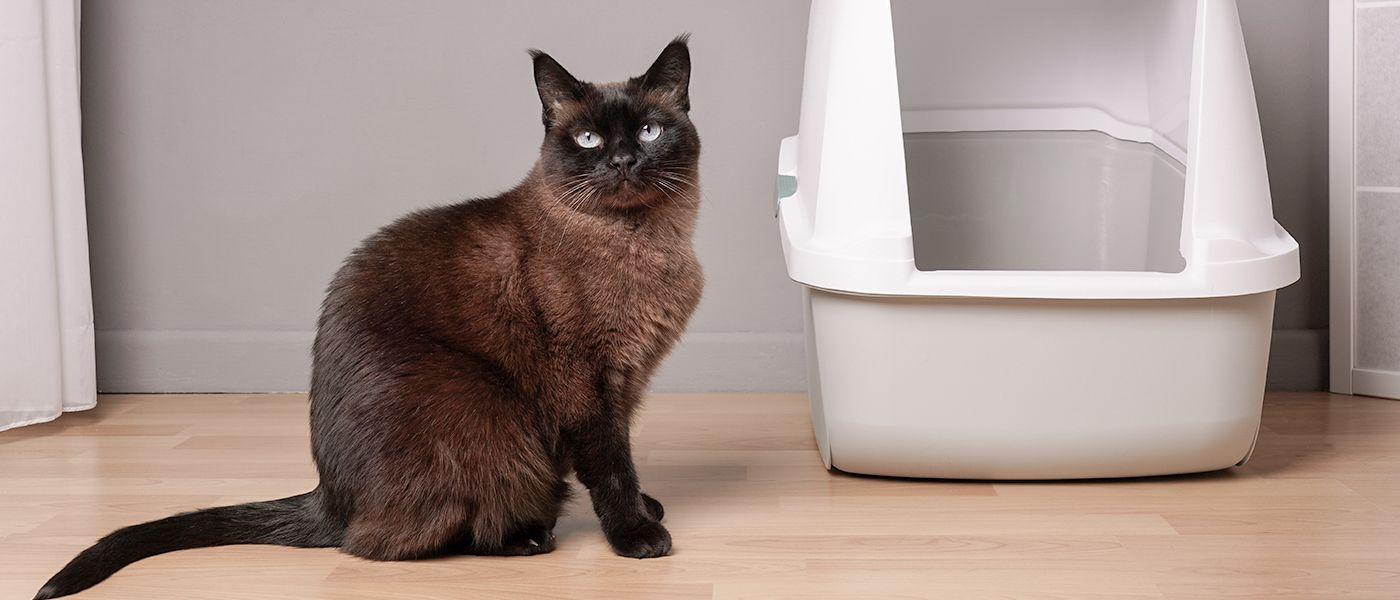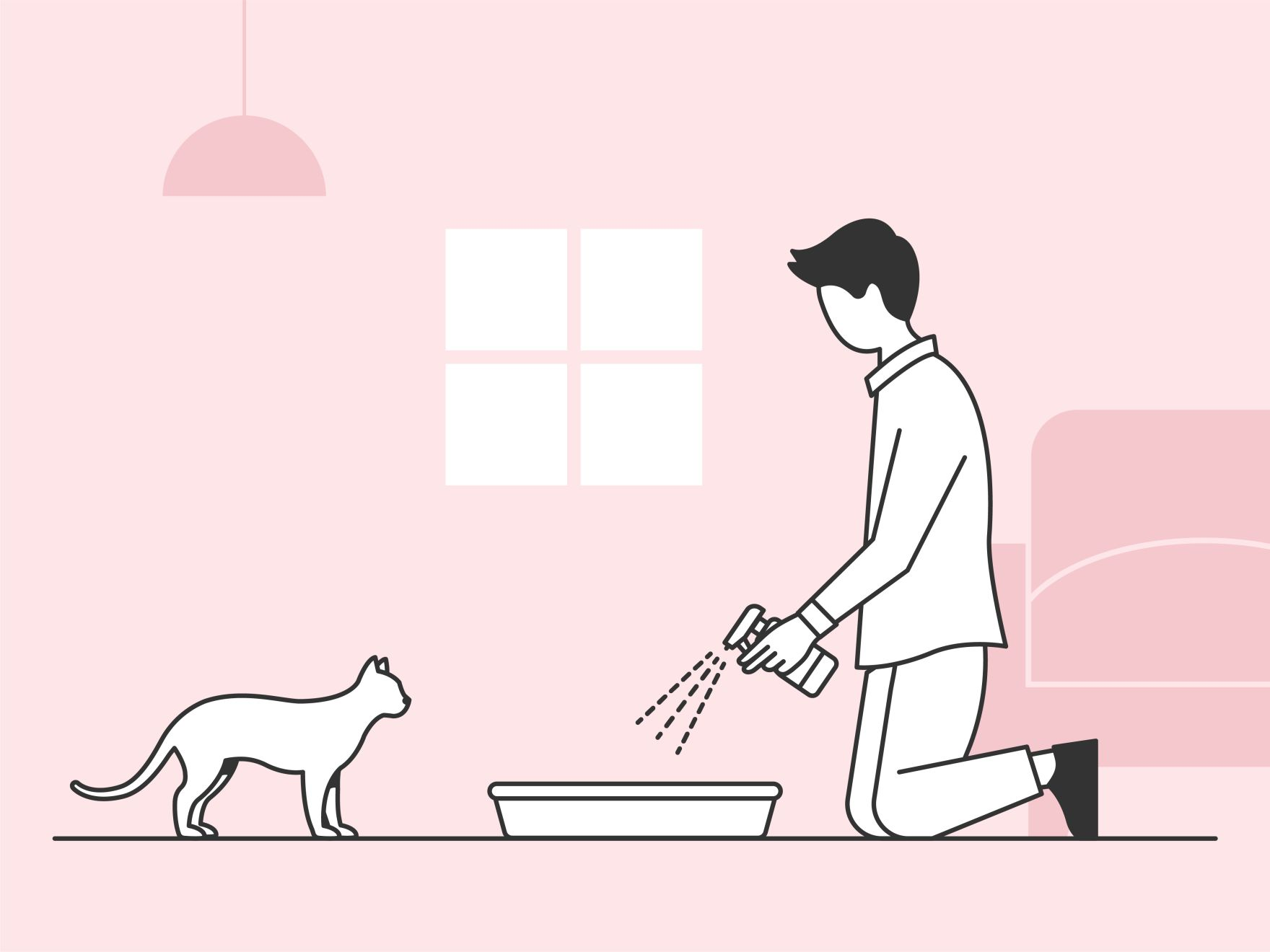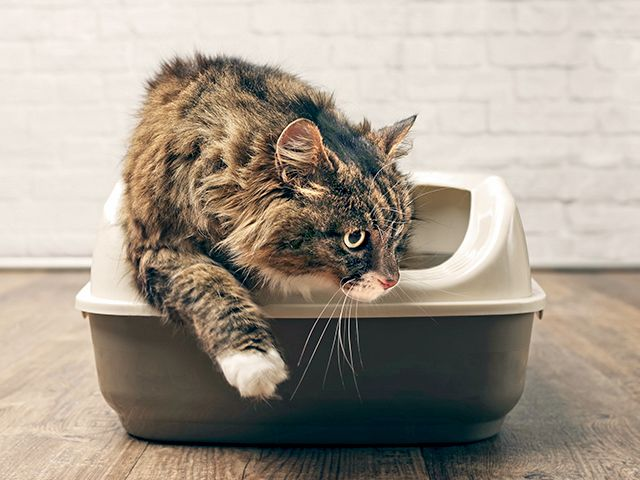How To Get Rid Of Cat Pee Smell
Article

If your once sweet-smelling home has been tainted by the whiff of cat pee, know that you’re not alone!
Why Is My Cat Peeing Everywhere?
First, your cat isn’t being mischievous. They probably have a good reason for urinating outside of the litter box, such as:
- Litter Box Aversion. If your cat can’t easily access their litter box because the sides are too high, or it’s out of reach, they’ll have to urinate elsewhere.
- Mobility issues. Arthritis is very common, especially in older cats, and what was once an easily accessible box can become painful to climb into.
- Stress. When cats are exposed to situations that they find stressful, it could trigger a urinary illness.
- A Medical Problem. Some health conditions may cause a cat to change its litter box habits.
To learn more about the potential causes of inappropriate urination, read Why Is My Cat Peeing Everywhere?
If your cat is suddenly peeing everywhere, you should contact your veterinarian. They’ll try to find the reasons behind any changes in behavior, provide the treatment they need, and hopefully, get them using the litter box again.
Why Does Cat Pee Smell So Bad?
If your cat urinates outside the litter box, you probably won’t smell anything at first. But as the bacteria in the urine breaks down, it will release ammonia. This corrosive, strong-smelling irritant is the scent we typically associate with stale urine.
As the decomposition continues, the smell will only worsen, as foul-smelling compounds called mercaptans are released.
You may find some cats have smellier urine than others due to certain health conditions or other factors. The urine of intact males is particularly pungent due to the high number of hormones.

How to Clean Cat Pee
The first thing to remember is to clean up cat urine as soon as you can. Once it’s dry, it’ll be harder for you to find, trickier to clean, and the smell will only intensify.
You also need to make sure you have the right cleaning products. While your usual cleaner may make the stain look and smell better, it’s unlikely to remove the uric acid that’s found in cat urine. And if your cat can still smell the stain, they’re likely to use the same spot again.
- Enzyme cleaner for cat urine. The natural enzymes and helpful bacteria in these cleaners break down and evaporate the uric acid in cat urine, removing both the stain and the smell. You’ll find enzyme cleaners for removing cat urine at your local pet shop or an online store.
- Avoid ammonia-based products. Many common household cleaning products contain ammonia – just like cat urine does! If you use one of these products to clean up cat urine, it will encourage your cat to urinate in the same place again.
How to Get Rid of the Smell of Cat Pee
Once you have the right cleaning products, you can get to work. Here are the steps we’d suggest for cleaning cat urine:
- Blot the area, soaking up as much of the cat urine as possible, with an old towel or cloth.
- Following the instructions on the bottle, apply the enzyme cleaner to the stain and let it dry for the suggested time – opening the windows or switching on a fan will help to keep the air flowing.
- While the cleaner is working, cover the stain with an upside-down laundry basket or something similar to stop your cat from reaching it.
- After the recommended time has passed, blot up any remaining product with a clean towel or cloth.
- You may need to reapply the enzyme cleaner to remove especially smelly, stubborn, or old stains. Fabrics and carpets may also need additional treatments.
If you're using a new cleaning product, always complete a spot test on an inconspicuous area before applying it to the stain.
Cleaning product instructions will vary, so read these each time to make sure the product is applied correctly and can be used on the surface. Avoid using a steam cleaner, as heat can set the stain.

Prevent Your Cat from Urinating Outside of the Litter Box
Cleaning the stain will help with the smell, but it doesn’t prevent repeat accidents or explain why your cat is urinating outside of the litter box. For that, you’ll need to see a veterinarian.
As part of their recommendations, your vet may suggest making changes around your home to improve your cat’s litter box habits. To learn more about how you can encourage your cat to use the litter box again, read Why Is My Cat Peeing Everywhere?
A veterinarian can also perform an examination and conduct tests to determine if your cat has a health issue, or is suffering from a behavioral problem, due to stress or anxiety.
For further suggestions and more information about cat bladder problems, visit our urinary treatment page.
Related Articles
Like & share this page